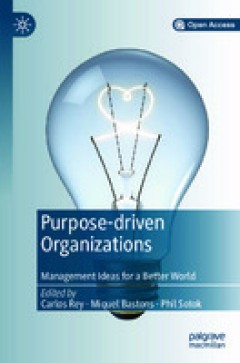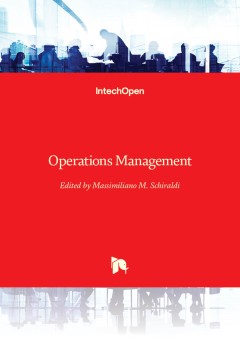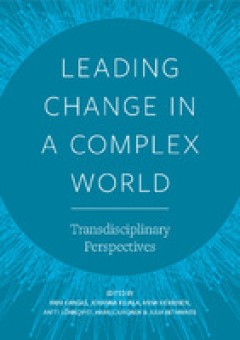Ditapis dengan

Risk Management and Assessment
Risk analysis, risk evaluation and risk management are the three core areas in the process known as ‘Risk Assessment’. Risk assessment corresponds to the joint effort of identifying and analysing potential future events, and evaluating the acceptability of risk based on the risk analysis, while considering influencing factors. In short, risk assessment analyses what can go wrong, how likely…
- Edisi
- -
- ISBN/ISSN
- 978-1-83880-796-2
- Deskripsi Fisik
- 118 hlm.
- Judul Seri
- -
- No. Panggil
- -

Purpose-driven Organizations: Management Ideas for a Better World
A higher purpose is not simply about profit. Symbolising the motivations of our actions and efforts, it reflects something much more aspirational and contributes to our global society. This open access book offers novel solutions to ensure employees support a wider organizational meaning whilst guaranteeing that the company benefits from the employee’s individual sense of purpose. Advocating …
- Edisi
- -
- ISBN/ISSN
- 978-3-030-17674-7
- Deskripsi Fisik
- 153 hlm.
- Judul Seri
- -
- No. Panggil
- -

Process Management
The content of the book has been structured into four technical research sections with total of 18 chapters written by well recognized researchers worldwide. These sections are: 1. process and performance management and their measurement methods, 2. management of manufacturing processes with the aim to be quickly adaptable after real situation demands and their control, 3. quality management in…
- Edisi
- -
- ISBN/ISSN
- 978-953-51-5876-9
- Deskripsi Fisik
- 356 hlm.
- Judul Seri
- -
- No. Panggil
- -

Operations Management
Operations Management is an area of business concerned with managing the process that converts inputs into outputs, in the form of goods and/or services. Increasingly complex environments together with the recent economic swings and substantially squeezed industrial margins put extra pressure on companies, and decision makers are pushed to increase operations efficiency and effectiveness. This …
- Edisi
- -
- ISBN/ISSN
- 978-953-51-6318-3
- Deskripsi Fisik
- 254 hlm.
- Judul Seri
- -
- No. Panggil
- -

Managing Innovation and Standards
This book provides an in-depth study of the management of standards and regulation in sustainable and radical innovation development. It considers the case of micro Combined Heat and Power (mCHP) technology. The developers of this radical innovation in the European heating sector encountered major conflicts when attempting to create or adapt standards when bringing the technology to market. Uti…
- Edisi
- -
- ISBN/ISSN
- 978-3-030-01532-9
- Deskripsi Fisik
- 177 hlm.
- Judul Seri
- -
- No. Panggil
- -

Management and Services
Management in all business areas and organisational activities are the acts of getting people together to accomplish desired goals and objectives. Service is intangible, therefore, it is not too easy to define the theory application in varieties of service industries. Service Management usually incorporates automated systems along with skilled labour; it also provides service development. Due t…
- Edisi
- -
- ISBN/ISSN
- 978-953-51-5920-9
- Deskripsi Fisik
- 96 hlm.
- Judul Seri
- -
- No. Panggil
- -

A Handbook of Management Theories and Models for Office Environments and Serv…
Although workplace design and management are gaining more and more attention from modern organizations, workplace research is still very fragmented and spread across multiple disciplines in academia. There are several books on the market related to workplaces, facility management (FM), and corporate real estate management (CREM) disciplines, but few open up a theoretical and practical discussio…
- Edisi
- -
- ISBN/ISSN
- 978-1-003-12878-6
- Deskripsi Fisik
- 271 hlm.
- Judul Seri
- -
- No. Panggil
- -

Leading Change in a Complex World: Transdisciplinary Perspectives
Leading Change in a Complex World : Transdisciplinary Perspectives is a transdisciplinary book offering tools for leaders, analysts and students of leadership to navigate in complex and interconnected settings. It proposes an analytical framework based on complexity, relational leadership, and dynamic change. Individual chapters examine these ideas in relation to topical societal, organisationa…
- Edisi
- -
- ISBN/ISSN
- 978-952-03-0845-2
- Deskripsi Fisik
- 372 hlm.
- Judul Seri
- -
- No. Panggil
- -

Digital Leadership
Digital leadership has been seen as a phenomenon allowing competitive advantages for organizations, but some studies do not include the risks, benefits, and challenges of this type of leadership. Consequently, the objective of this book is to fill this gap by combining several studies from different perspectives. The various chapters presented here follow several approaches and applications tha…
- Edisi
- -
- ISBN/ISSN
- 978-1-78985-399-5
- Deskripsi Fisik
- 174 hlm.
- Judul Seri
- -
- No. Panggil
- -

Time Management
The time management is worthy goal of many human activities. It concerns variety problems related to goals definition, assessment of available resources, control of management policies, scheduling of decisions. This book is an attempt to illustrate the decision making process in time management for different success stories, which can be used as reference models by the interested audience.
- Edisi
- -
- ISBN/ISSN
- 978-953-51-5122-7
- Deskripsi Fisik
- 120 hlm.
- Judul Seri
- -
- No. Panggil
- -
 Karya Umum
Karya Umum  Filsafat
Filsafat  Agama
Agama  Ilmu-ilmu Sosial
Ilmu-ilmu Sosial  Bahasa
Bahasa  Ilmu-ilmu Murni
Ilmu-ilmu Murni  Ilmu-ilmu Terapan
Ilmu-ilmu Terapan  Kesenian, Hiburan, dan Olahraga
Kesenian, Hiburan, dan Olahraga  Kesusastraan
Kesusastraan  Geografi dan Sejarah
Geografi dan Sejarah